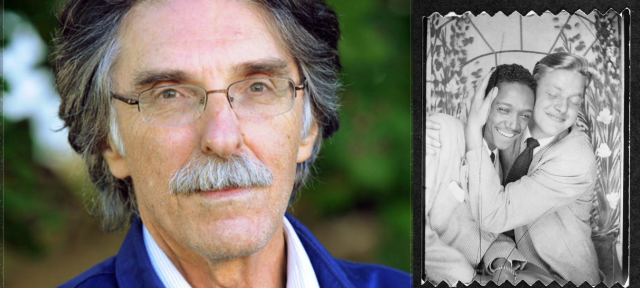Professor of Film and Photography Abraham Ravett Soon to Retire, but Still Screening

At the end of the upcoming academic year, Professor of Film and Photography Abraham Ravett will wrap up almost half a century of teaching at Hampshire. He continues to have local and international screenings of his films.
When Ravett arrived at Hampshire, in 1979, he wasn’t yet familiar with the College’s alternative curriculum and student-directed studies. “I knew the work of three faculty members — Jerome Liebling, Elaine Mayes, and Tom Joslin. I was honored to work in a program with these three creative image makers,” he says.
Ravett, a creative image maker in his own right who has made more than 50 films and completed five major photography series, is the director of 1994’s Forgotten Tenor, which will screen on September 3 at Amherst Cinema as part of its “Sound and Vision” series. On September 30, the Zeughauskino, of the German Historical Museum in Berlin, will show four of his short films as part of its “After the Shoah” series. Ravett will attend the Amherst screening and there will be a post-film discussion.
What have been some of your favorite courses over the years?
I always like teaching the 16mm Filmmaking Workshop, which provides students with the opportunity to slow down, think about what they would like to explore, and develop the craft necessary to realize their ideas. I’m also interested in presenting films and readings that introduce students to a broad history of filmmaking.
Japanese Cinema is an overview of some major films in the narrative, documentary, and experimental traditions that have evolved over the years. In tandem with the screenings is an overview of significant historical and cultural components that have informed the making of these films.
Nonfiction Filmmaking provides students with an overview and a taxonomy of the kinds of documentary films that have been made and that they, in turn, can make. An auxiliary to this course is one that concentrates on music documentaries, films made about music, or musicians in a variety of genres.
In Recycled Images, we explore ways in which found or archival materials have been incorporated into the work of musicians, photographers, visual artists, and filmmakers.
I’m always surprised and, of course, delighted at the creativity, tenacity, and hard work demonstrated by some of our students, especially at such young ages, and the talents they’ve shown in multiple disciplines.
What have been some of the most rewarding aspects about teaching at the College?
I really like introducing students to work they’ve never seen, heard, or read and watch how that experience enlivens their development as image makers. Second, I savor the relationships I have with alums who have continued working as filmmakers and photographers as well as those who have found other kinds of work but think fondly about their experiences at Hampshire.
In consultation with colleagues in our program, I’ve appreciated the opportunity to choose the types of courses I want to teach and have always received administrative support to undertake and curate film series for the larger community.
Were there ways in which working with students on their projects inspired or informed your own work?
I’m always surprised and, of course, delighted at the creativity, tenacity, and hard work demonstrated by some of our students, especially at such young ages, and the talents they’ve shown in multiple disciplines. It encourages me to keep at it, especially when I’m learning a new discipline.
Is the 2025–26 academic year your final one? What comes next?
Yes, it’s the conclusion of my “phased retirement” contract undertaken five years ago by my own choosing. I plan to stay healthy, keep walking, be open to new experiences and friendships, keep doing my own work, and, if the opportunity arises, work with graduate students in filmmaking.



